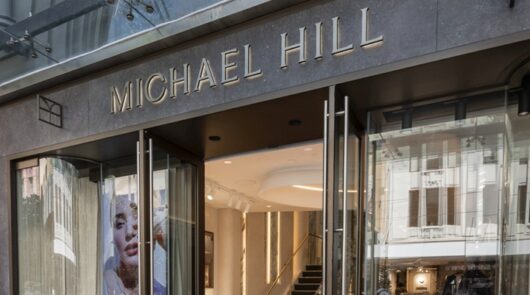 Retail Food Group is reportedly looking to offload further retail assets to support its struggling business.
Retail Food Group is reportedly looking to offload further retail assets to support its struggling business.
The franchisee network is working with corporate advisory firm 333 Capital to explore recapitalisation options, which includes assistance in a small number of potential sales.
RFG is potentially looking to offload its Hudson Pacific bakery arm and is working with KPMG to oversee the sale of its Crust Pizza and Pizza Capers businesses, according to The Australian.
“There has obviously been a lot of speculation around our potential asset sales,” RFG chief communications officer Belinda Hamilton told IR.
“The fact of the matter is that our board has been considering a range of options, one of which includes potential asset sales. Work on all of these potential options commenced some time ago and continues.
“However I can confirm that at this time, the board has certainly not reached a definitive position.”
RFG has been under intense scrutiny during the parliamentary inquiry into the franchising sector, with former RFG executives Tony Alford, Alicia Atkinson and Andre Nell grilled at a special hearing earlier this week after the high court shot down their proposed challenge of the committee’s powers late last week.
In a revealing three-hour hearing, Alford and Atkinson denied any knowledge of the circumstances that led to RFG’s $427 million impairment and subsequent closure of 250 stores, equating to roughly 17 per cent of its domestic network.
“My evidence is that I had departed RFG in June 2017, what occurred after that date I have no knowledge or insight of,” Alford told the committee.
The former managing director and CEO provided little insight for much of the first half of the hearing, prompting Senator Deborah O’Neill to question his role at the helm of the franchise giant.
“Sounds like you showed up, got the pay, but you don’t know anything about it. What did you actually do?” Senator O’Neill asked.
Alford, who was revealed to have been director for 674 companies over his lifetime, was questioned by Senator John Williams on the rapid growth of RFG under his tenure.
“Growth was programmed, it was steady, and it was as required,” Alford said.
Since the beginning of 2017, RFG shares have fallen from $7.00 to just $0.40, which Alford, who described himself as a shareholder, indicated was troubling.
“The appetite for those shares and the perceived value of the company by the market have dramatically decreased, as has profits. In 2017, for example, you have company with a run rate EBITDA of $130 million, and then in 2018, there was a significant write down of assets and a significant reduction in EBITDA or earnings,” Alford told the committee.
It was later revealed that Alford was in fact not a shareholder, but rather that his family held shares in the company, leading to a heated line of questioning that prompted Alford to at one point accuse the committee of acting impudently, remarking “it’s not helpful to be snide”.
“We had to fight you through the high courts to get you here to answer the questions Mr. Alford, you are the last person that should be calling people snide,” Senator Deborah O’Neill responded.
Former CEO: Lease expiry to blame for store closures
Throughout the hearing, the former managing director and CEO reiterated that the primary factor in store closure was lease expiration, indicating that while stores closed regularly and throughout the financial year, it wasn’t necessarily due to franchisee failure.
“The stores by and large close as a consequence of the expiration of the lease. The majority of leases were for a five-year period, sometimes with the option for a further five years,” Alford said.
Senator Matt Keogh disagreed however, questioning whether RFG’s model of charging franchise service fees, in addition to franchise network fees constituted as double dipping.
“If there’s a commission on goods coming into the business, and then a franchisee fee on sales, for selling the products that they’ve effectively just paid a fee to purchase, isn’t that double dipping? Do you see that as a wholly sustainable model?” Keough asked.
Alford responded by arguing that the only model that would be more transparent would be one where there were no franchise network fees at all and where franchise services fees were increased to compensate.
Towards the end of the hearing, Senator O’Neill reiterated that while Alford, Atkinson and Nell’s appearance at the hearing was forced, it would have a significant impact on the inquiry’s findings come December, and urged the trio to read the many hundreds of submissions regarding RFG.
“Take the time to actually read the evidence that we’ve received; the devastation and the wreckage in the lives of people who bought a franchise, while you were highly engaged at RFG in a leadership role,” Senator O’Neill told the former RFG executives.
“They bought franchises and they consistently tell us that what they were sold did not match what they received, support they were offered was not given, goods that they expected to purchase at a wholesale rate were overcharged to them at higher than a retail rate. This is consistent evidence we’ve received.”
The Senate is expected to hand down its findings on the parliamentary inquiry into the Franchising Code of Conduct on December 6.
Authors: Nick Hall & Dean Blake
This is an edited version of a story that originally appeared on sister-site Inside Franchise Business.
Access exclusive analysis, locked news and reports with Inside Retail Weekly. Subscribe today and get our premium print publication delivered to your door every week.






